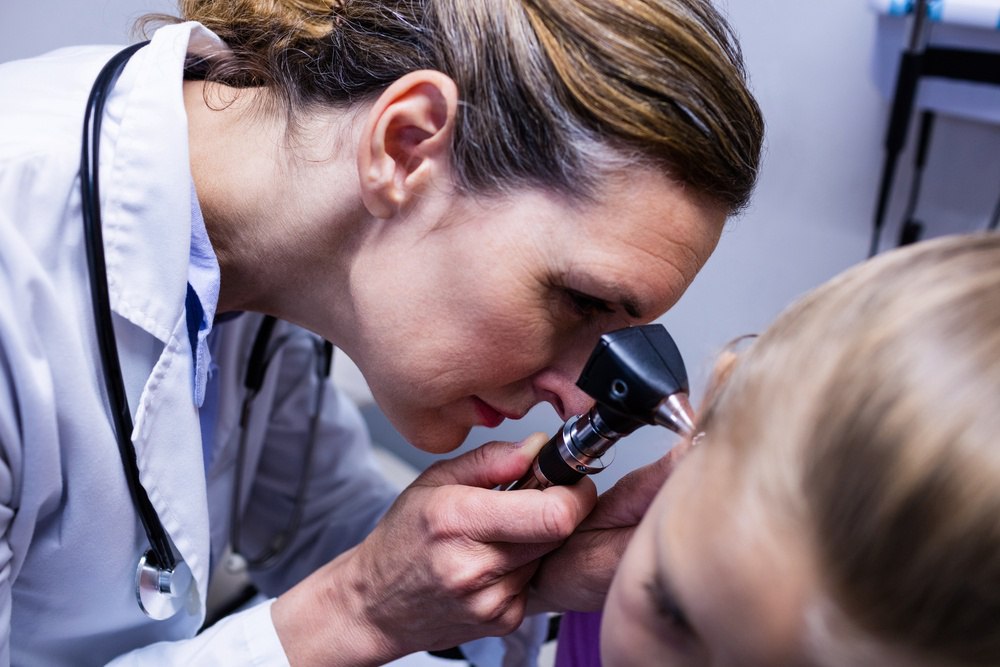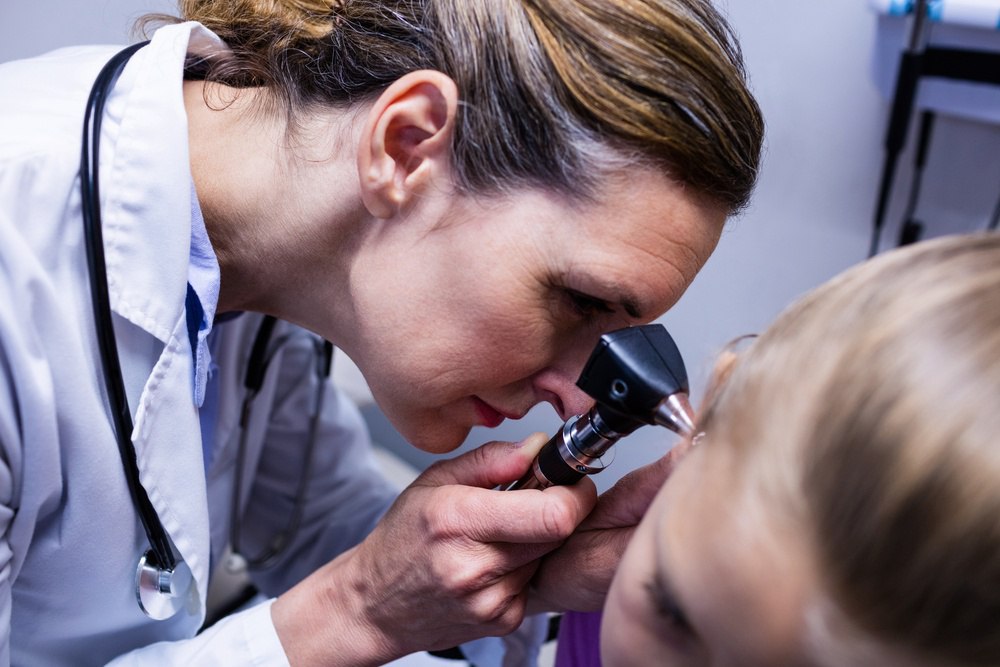What is an Audiologist? (Reasons and Indications)
July 31st, 2017 | 4 min. read


Hearing loss is a common health issue. In fact, in the U.S. alone, it's the third most common condition, reports the Centers for Disease Control and Prevention (CDC). It’s even more common than cancer and diabetes.
Despite this, few people know when it's time to see an audiologist. Around 37.5 million American adults (15 percent) who are over the age of 18 reports some trouble hearing.
Loss of hearing isn't limited to just adults and elderly either. Data suggests that 14.9 percent of children in the U.S. who are school-aged have some degree of hearing loss. And there were more than 45,000 infants born in the U.S. between the years 2005 through 2014 who were hard of hearing.
What is an Audiologist?
Houston audiologists are health care professionals who identify, evaluate, and manage hearing, balance and different neural system disorders.
What Does an Audiologist Do?
There is a variety of duties of an audiologist, including:
-
Providing help to patients who range from infants to geriatric.
-
Conducting hearing tests.
-
Choosing, fitting and dispensing hearing aids and assistive listening devices.
-
Providing and fitting protective hearing devices to prevent hearing loss.
-
Providing consumer education and consulting on noise effects on hearing.
-
Helping in research that's essential for the identification, prevention and management of hearing loss, balance system dysfunction and tinnitus.
Audiologists do their best to help preserve your remaining hearing and take care of your long-term hearing loss. Aside from giving you your diagnosis, audiologist also provides you with hearing aids or other hearing devices to restore some of your hearing and improve your quality of life.
However, audiologists aren't qualified to treat any medical concerns your loss of hearing is related to, such as performing surgery. If they suspect a medical condition is a reason behind your hearing loss, you should see a Houston ENT (ear, nose, throat) physician.
Audiologists treat people of all ages: adults, children, teens, the elderly and infants. They also treat all types of hearing loss. Loss of hearing is nerve damage causes is treatable by an audiologist with hearing rehabilitation, hearing aids and assistive listening devices.
Hearing loss can be present at birth or congenital. It can also develop suddenly at any age because of certain medications or medical conditions. Typically, loss of hearing is associated with aging and tends to develop gradually later on in life. However, you may suffer from noise-induced hearing loss too.
It can be difficult sometimes to tell if you should see an audiologist, therefore, some reasons and indications you should set up an appointment with one are below.
Reasons to See an Audiologist
These are just some reasons to see an audiologist.
For a Routine Checkup
Scheduling an annual checkup for your hearing and ears is just as essential as having your eyes checked. The audiologist will give you a comprehensive evaluation. They are trained and have the equipment to best identify a variety of hearing loss ranges.
To Obtain Advice Related to Your Ears
If your doctor checked your ears and mentioned that you had too much ear wax, for instance, you may want to follow up with an audiologist. This is just to ensure that it isn't causing any temporary hearing loss.
Because You Have Tinnitus
Around 10 percent of American adults (25 million) have had tinnitus that lasted a minimum of five minutes in the past year. Tinnitus is a whistling, buzzing, screeching noise or whining in your ears or head when there isn't any equivalent noise present. Usually, tinnitus is a symptom of a bigger issue such as hearing loss and you'll need this underlying problem corrected to alleviate the tinnitus.
It may seem illogical, but certain studies show that tinnitus in many cases is a symptom of hearing loss and by wearing hearing aids, they increase your hearing and relieve the noises you're experiencing.
Your Children Need to Have Their Hearing Checked
As a parent of a younger child, you may wonder if your child is displaying normal behavior (for a child) or if they may be having a hearing problem. Hearing loss can happen no matter what age you are, even infants. Loss of hearing isn't easily recognized, however, but there are ways you can identify if your child is experiencing hearing loss including:
-
Speech problems
-
Inattentive
-
Needs to turn volume up on TV
-
Doesn't follow directions
-
Learning difficulties
-
Social withdrawal
Discuss with your child's pediatrician other signs of hearing loss.
You Developed Sudden Sensorineural Hearing Loss
Things like a recent plane travel, ear trauma, sneezing, or other physical causes are some reasons behind sudden sensorineural hearing loss. However, there's not always a direct link between loss of hearing and physical suffering or pain. It also happens without pain and may seem more like a temporary issue rather than an emergency. Sudden hearing loss should always be considered an emergency and if you or a loved one is experiencing it, you should go see an audiologist immediately.
You Have Excessive Earwax
We all need earwax. It protects your inner ear, and it provides self-cleaning, antibiotic properties that block germs from entering your ear canal and moisturizes your ear canal. In most cases, it's not necessary to clean wax from your ears since many of the solutions on the market today for cleaning your earwax can be damaging.
Examples of devices used to clean earwax that could cause the wax to embed further into your ear include:
-
Ear candling
-
Cotton swabs
-
Irrigators
You should make an appointment with an audiologist if you have excessive earwax that needs to be properly removed by a professional.
Indications to See an Audiologist
One of the biggest indicators it's time to see an audiologist is that you’re experiencing hearing loss. But, being able to recognize the signs of hearing loss can be difficult. Only by having a hearing test can you be absolutely sure you whether or not you have hearing loss, and if so, how extensive.
There are signs that you might have to visit an audiologist to get a hearing evaluation. These signs include:
-
Having trouble hearing over the phone.
-
Having trouble following a conversation with more than one person who both speak at once or if you're in a noisy background.
-
Asking people to repeat themselves.
-
Having trouble understanding and hearing speech of women and children.
-
Avoiding activities because you have issues understanding and hearing speech in general.
-
Believing people are always mumbling.
-
Misunderstanding other people or responding inappropriately.
-
Being confused about where noises and sounds are coming from.
-
Missing sounds like the doorbell or telephone ringing.
Going to an audiologist is just as important as going to see your primary doctor. Therefore, you should make it a point to schedule a yearly check up with an audiologist. Although your primary doctor will look into your ears and can see if you have earwax buildup, it's only by seeing an audiologist that can give you a deeper understanding and depth analysis of your ear health and hearing.
If you or a loved one believes that you're experiencing an issue with hearing or if you have a balance problem, give us a call here at Houston ENT & Allergy.
At one of our 12 convenient locations, we’ll carefully review your health history and will evaluate your hearing. Should you be diagnosed with hearing loss, we can work with you to choose the perfect hearing aid for your lifestyle, comfort, and quality of life improvement.
Mark Lynn Nichols, M.D., received his Bachelor of Science degree with Honors in Pharmacy in 1983, prior to his entering the University of Texas Medical Branch, Galveston, Texas, where he received the degree of Doctor of Medicine with Highest Honors. Following his Internship in General Surgery, and Residency in Otolaryngology at UTMB, Dr. Nichols did a Fellowship in Otology-Neurotology at the Ear Research Foundation, in Sarasota, Florida. He is a member of several professional associations, and is a Diplomat of the American Board of Otolaryngology.
Topics:

